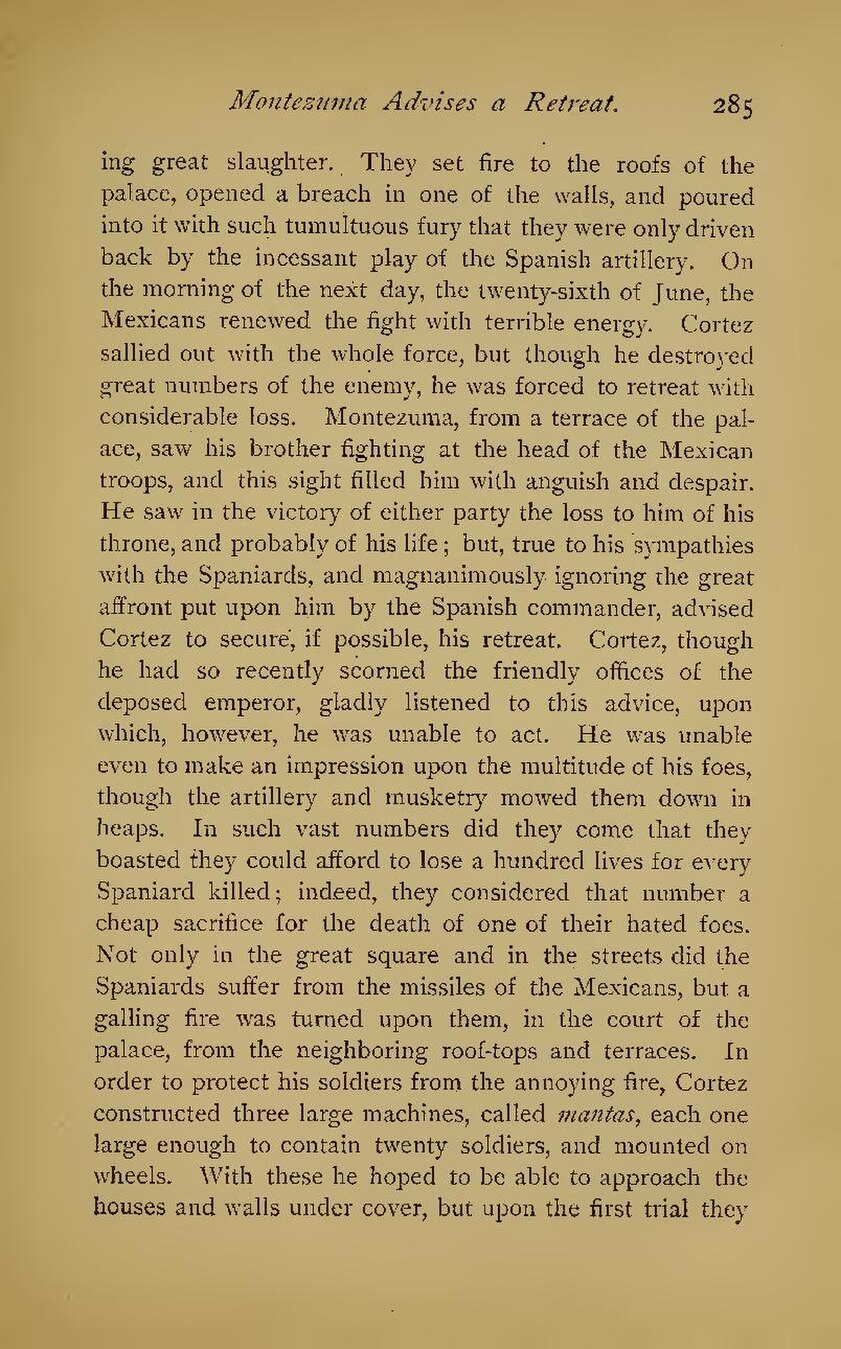inflict great slaughter. They set fire to the roofs of the palace, opened a breach in one of the walls, and poured into it with such tumultuous fury that they were only driven back by the incessant play of the Spanish artillery. On the morning of the next day, the twenty-sixth of June, the Mexicans renewed the fight with terrible energy. Cortez sallied out with the whole force, but though he destroyed great numbers of the enemy, he was forced to retreat with considerable loss. Montezuma, from a terrace of the palace, saw his brother fighting at the head of the Mexican troops, and this sight filled him with anguish and despair. He saw in the victory of either party the loss to him of his throne, and probably of his life; but, true to his sympathies with the Spaniards, and magnanimously ignoring the great affront put upon him by the Spanish commander, advised Cortez to secure, if possible, his retreat. Cortez, though he had so recently scorned the friendly offices of the deposed emperor, gladly listened to this advice, upon which, however, he was unable to act. He was unable even to make an impression upon the multitude of his foes, though the artillery and musketry mowed them down in heaps. In such vast numbers did they come that they boasted they could afford to lose a hundred lives for every Spaniard killed; indeed, they considered that number a cheap sacrifice for the death of one of their hated foes. Not only in the great square and in the streets did the Spaniards suffer from the missiles of the Mexicans, but a galling fire was turned upon them, in the court of the palace, from the neighboring roof-tops and terraces. In order to protect his soldiers from the annoying fire, Cortez constructed three large machines, called mantas, each one large enough to contain twenty soldiers, and mounted on wheels. With these he hoped to be able to approach the houses and walls under cover, but upon the first trial they
